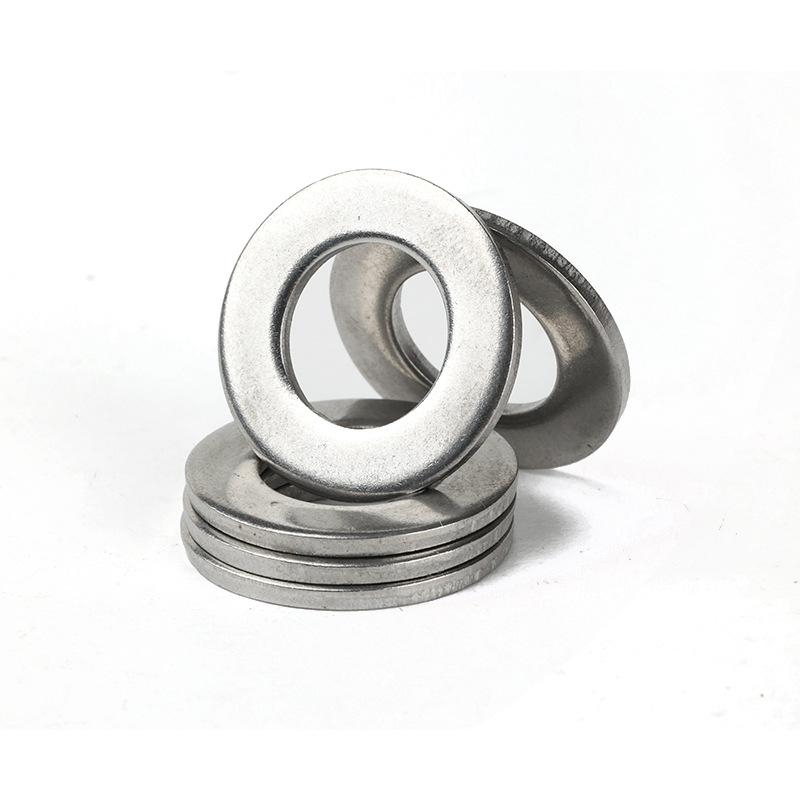

neoprene washers
พ.ย. . 11, 2024 21:14 Back to list
neoprene washers
Understanding Neoprene Washers Versatile Solutions for a Variety of Applications
Neoprene washers are an essential component in various industries, offering unique advantages due to their material composition and properties. As a synthetic rubber, neoprene is known for its excellent resistance to weathering, ozone, and various chemicals. This makes neoprene washers particularly valuable in applications where durability and reliability are paramount.
What Are Neoprene Washers?
Neoprene washers are flat, disc-shaped components made from neoprene rubber. They are typically used to create a seal between two objects, preventing leaks and providing cushioning. These washers can be found in various sizes and thicknesses to suit different applications. Their primary function is to offer a tight seal, which is critical in plumbing, automotive, and electronic applications, among others.
Key Properties of Neoprene Washers
1. Chemical Resistance Neoprene is highly resistant to various chemicals, including oils, solvents, and water. This resistance makes neoprene washers suitable for use in environments where exposure to harsh substances is inevitable.
2. Temperature Tolerance Neoprene can withstand a wide range of temperatures, typically from -40°F to 200°F (-40°C to 93°C), making it ideal for outdoor applications or in environments with fluctuating temperatures.
3. Flexibility and Elasticity One of the standout characteristics of neoprene is its flexibility. Neoprene washers can compress and conform to the surfaces they are sandwiched between, ensuring a secure seal. This elasticity also allows them to withstand vibrations and movements without losing their sealing properties.
4. Durability Neoprene's resistance to wear, tear, and aging contributes to the longevity of neoprene washers. This durability makes them a cost-effective solution in the long run, reducing the need for frequent replacements.
Applications of Neoprene Washers
Neoprene washers find utility in various fields due to their unique properties
1. Plumbing In plumbing systems, neoprene washers create watertight seals for pipes and faucets. They help prevent leaks, thus saving water and reducing the risk of damage from water infiltration.
neoprene washers

2. Automotive Industry Neoprene washers are often used in automotive applications, such as in engine seals and fuel systems. Their ability to withstand fuel and oil exposure makes them essential components in maintaining vehicle performance and safety.
3. Electronics In electronic devices, neoprene washers are used to cushion and seal components, protecting them from moisture and dust. Their insulating properties also make them valuable in electrical applications, helping to prevent short circuits.
4. Construction Neoprene washers are often employed in the construction industry to seal roofing and HVAC systems, preventing leaks that could lead to costly repairs and energy loss.
Choosing the Right Neoprene Washer
When selecting neoprene washers for a specific application, several factors need to be considered
1. Size and Thickness The size and thickness of the washer must match the components it will be used with. A proper fit ensures an effective seal and optimal performance.
2. Hardness Neoprene washers come in various hardness levels, typically measured on the Shore A scale. Softer washers provide better compression and sealing, while harder washers offer more durability.
3. Temperature and Chemical Exposure It's crucial to consider the specific environments in which the washers will be used. Ensure that the selected neoprene composition can withstand the temperatures and chemicals present in the application.
4. Certifications For critical applications, look for neoprene washers that meet industry standards or certifications, ensuring they meet specific performance criteria.
Conclusion
Neoprene washers are indispensable components across various industries, providing reliable sealing and cushioning solutions. Their unique properties, such as chemical resistance, temperature tolerance, and durability, make them suitable for a wide range of applications. When selecting neoprene washers, it is essential to consider the specific requirements of the application to ensure optimal performance. As technology and industrial demands evolve, neoprene washers are likely to remain a staple in ensuring effective and lasting connections in countless products and systems.
Latest news
-
Hot Dip Galvanized Bolts-About LongZe|High Strength, Corrosion Resistance
NewsJul.30,2025
-
High-Strength Hot Dip Galvanized Bolts - Hebei Longze | Corrosion Resistance, Customization
NewsJul.30,2025
-
Hot Dip Galvanized Bolts-Hebei Longze|Corrosion Resistance&High Strength
NewsJul.30,2025
-
High-Strength Hot-Dip Galvanized Bolts-Hebei Longze|Corrosion Resistance&High Strength
NewsJul.30,2025
-
Hot Dip Galvanized Bolts-Hebei Longze|Corrosion Resistance&High Strength
NewsJul.30,2025
-
Hot Dip Galvanized Bolts - Hebei Longze | Corrosion Resistance, High Strength
NewsJul.30,2025

